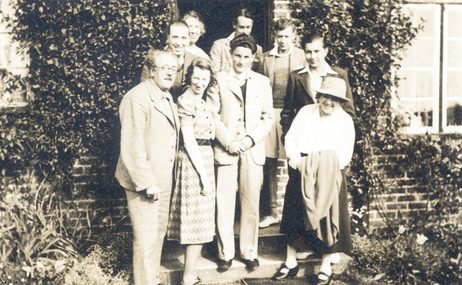Presented by Sarah Connolly
This powerful cantata belongs to a remarkable group of works from Britten’s ‘late’ period. During a heart operation in 1973 Britten suffered a small stroke resulting in weakness to his right side – he could no longer play the piano as well as before, and his handwriting noticeably deteriorated. Despite this, and to a great part down to the care of his nurse Rita Thomson, Britten composed some of his most beautiful and powerful works between 1973 and his death three years later. Phaedra was composed in the summer of 1975 and performed at the 1976 Festival and has the atmosphere and drama of a mini-opera. It was written specifically for the mezzo-soprano Janet Baker, who gave the first performance and is in the format of a cantata: a mix of recitative (or speech-like singing) and extended vocal passages.
The narrative takes moments of Racine’s Phèdre (in a version by Robert Lowell) in which Phaedra describes her passion for Hippolytus, her stepson, his rejection of her, and her subsequent decision to poison herself to achieve some degree of ‘purity’. The vocal writing is some of the most full-blooded Britten ever composed, the mezzo soaring up to her highest reaches at moments of passion or rage. She is accompanied by string orchestra, percussion and harpsichord, scored with characteristic precision, ranging from eerie, skeletal commentary to heart-wrenching emphasis of Phaedra’s despair. Given Britten’s fragile health, it is an astonishing achievement. After the premiere in 1976 harpsichordist George Malcolm remarked ‘I just couldn’t believe that the man who had written it was in that condition’.


